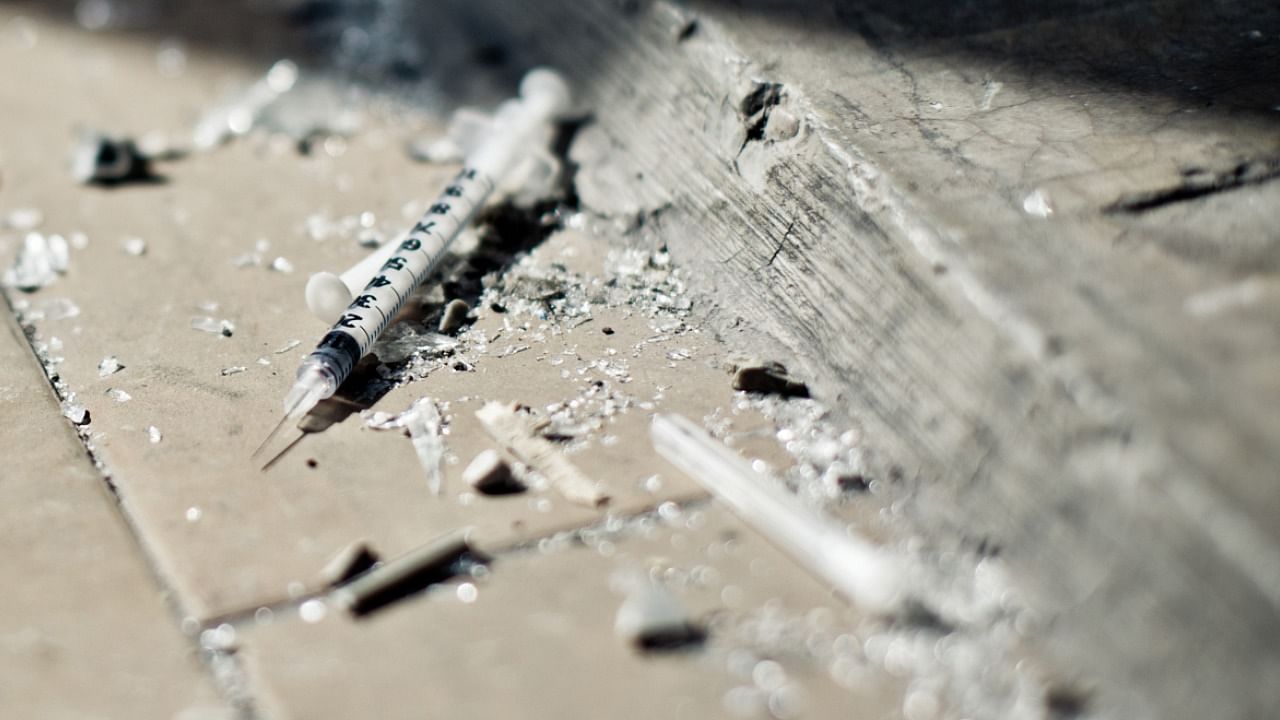
Heroin production has boomed in Afghanistan in recent years, helping fund the Taliban, and experts say they will struggle to wean themselves off the profitable trade despite their promise to do so.
Speaking Tuesday at a first press conference since taking power, Taliban spokesman Zabihullah Mujahid promised that the new government would not turn the world's leading producer of opium into a fully-fledged narco-state.
"We are assuring our countrymen and women and the international community, we will not have any narcotics produced," Mujahid told reporters in Kabul.
"From now on, nobody's going to get involved (in the heroin trade), nobody can be involved in drug smuggling."
But the anti-heroin rhetoric -- like similar pledges to respect human rights and media freedom -- are seen by analysts as part of efforts by the new Taliban leaders to show a more moderate face in order to secure international backing.
The vast majority of the world's opium and heroin comes from Afghanistan, with production and exports centred in areas controlled by the Taliban, which has taxed the drugs heavily during their 20-year insurgency.
It has become a key resource for the group and they could struggle to ban it, said Jonathan Goodhand, an expert in the international drugs trade at SOAS University of London.
"Drugs will bring out a set of tensions in the movement," he predicted.
On one hand, "they want to create this image of themselves as more moderate and more open to engagement with the West and they realise drugs is one of way of doing this," he said.
But on the other, any repression would hit farmers in the Taliban political heartlands of Helmand and Kandahar provinces in particular.
"It's going to struggle to take a very aggressive approach to drugs," he added.
In his premier press conference, Mujahid pleaded for "international assistance" to provide farmers with alternative crops to poppies, the source of sap that is refined into morphine and heroin.
The appeal for international aid might prompt hollow laughs from people who worked in the coalition of NATO forces, NGOs and UN workers over the last 10 years that tried in vain to break Afghanistan's reliance on poppy farming.
The United States spent around $8.6 billion (7.4 billion euros) from 2002 to 2017 in its doomed effort to combat the drugs trade, according to a 2018 report from the US Special Inspector General for Afghanistan (SIGAR).
Those efforts included paying farmers to grow wheat or saffron, investing in transport links, as well as spraying defoliants on crops and bombing refining facilities.
At each step, they found themselves thwarted by Taliban fighters who controlled the main poppy-growing regions and derived hundreds of millions of dollars from the industry, according to US and Afghan government estimates.
Farmers in Taliban-controlled areas would often come under pressure to plant poppies from local warlords and fighters, investigations have found.
As a result, the country has a near-monopoly on opium and heroin, accounting for 80 to 90 percent of global output, according to the United Nations Office on Drugs and Crime (UNODC).
The amount of land planted with poppies hit a record high in 2017 and has averaged around 250,000 hectares in the last four years, roughly four times the level of the mid-1990s, UN figures show.
The narcotics policy of the new government will affect global heroin prices, with repercussions for Western countries and their addicts, as well as Russia, Iran, Pakistan and China -- all major smuggling routes but also huge markets for Afghan drugs.
In recent years, traffickers have also discovered that a plant commonly found in Afghanistan called ephedra can be used to create a key component of methamphetamine, better known as "crystal meth".
Still, spokesman Mujahid vowed Afghanistan would be a "narcotics-free country" moving forward.
It's not the first time the fundamentalist group has vowed to outlaw the trade. Production was banned in 2000, just before the group was overthrown by US-led forces.
Gretchen Peters, the American author of the book "Seeds of Terror: How Heroin Is Bankrolling the Taliban and Al-Qaeda", said the Taliban's previous ban on poppy cultivation was tactical.
"They were under immense international pressure," she said. "It was a ploy because they had so much stored up. They made a huge amount of money once the price shot up by 10 times."
"They are not going to get rid of the drug trade because they are too tied up with it."
"Afghanistan cannot survive without opium. It is simultaneously killing Afghanistan while also keeping a huge number of people alive," she said, referring to the income the industry provides to poor farmers.
Being in control of the country will offer the Taliban access to airlines, the state bureaucracy and banks which could be used to facilitate drug smuggling and money laundering, she explained.
"I have no doubt they will exploit it."